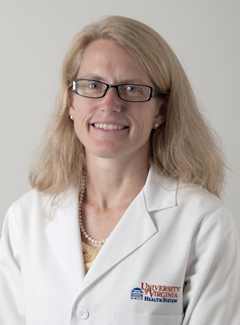A team of scientists at the University of Virginia School of Medicine in Charlottesville, Virginia investigating effects of bariatric surgery on obese women most at risk for cancer has found that the weight loss surgery resulted in excellent weight loss (mean 45 kg), slashing participants’ weight by about one-third, also eliminated precancerous uterine growths in persons who had them, and significantly improved physical quality of life.
The researchers report that women presenting for bariatric surgery had a 10 percent baseline endometrial hyperplasia prevalence. Bariatric surgery was also accompanied by improved glucose homeostasis, insulin responsiveness, and inflammation to a greater extent than hormonal changes, which may reduce their risk for diabetes, and altered composition of the patients’ gut bacteria, although the investigators note that the potential cancer protective effects of bariatric surgery may be due to other mechanisms other than simply hormonal changes.
Results and findings of the U. Va study have been published as a lead article in the journal Gynecologic Oncology, entitled “Women at extreme risk for obesity-related carcinogenesis: Baseline endometrial pathology and impact of bariatric surgery on weight, metabolic profiles and quality of life“ (Gynecologic Oncology August 2015, Vol.138(2):238245, doi:10.1016/j.ygyno.2015.05.015) coauthored by Dr. Susan C. Modesitt of the University of Virginia Cancer Center, with Peter T. Hallowell, Jill K. Slack-Davis, Kristen A. Atkins, Sarah L. Kelley, Sanja Arapovic, Margaret A. Shupnik and Kyle Hoehn — of variois University of Virginia departments and Ryan D. Michalek of Metabolon, Inc., in Durham, North Carolina.
The study’s original objectives were to determine baseline endometrial histology in morbidly obese women undergoing bariatric surgery, and to assess the surgical intervention’s impact on serum metabolic parameters, quality of life (QOL), and weight.
Mean age of the 71 women enrolled in the study was 44.2 years, mean body mass index (BMI) was 50.9 kg/m2. Women are considered obese at a BMI of 30 and morbidly obese at BMI 40 (which is typically about 100 pounds over a woman’s ideal body weight), although almost a third of women presenting for bariatric surgery did not identify themselves as obese. The researchers investigated the effects of bariatric surgery in a relatively short timeframe, one to three years after surgery. A total of 68 participants ultimately underwent the procedure; two opted out of the surgery, and another died of a heart condition prior to surgery. Mean weight loss was dramatic, averaging 45.7 kg — more than 100 pounds.
Endometrial biopsy results and hyperplasia QOL data showed significant improvement in physical component scores. Twenty women also underwent metabolic analysis, which demonstrated significantly improved glucose homeostasis, improved insulin responsiveness, and free fatty acid levels. Significant perturbations in tryptophan, phenylalanine and heme metabolism suggested decreased inflammation and alterations in the intestinal microbiome. Most steroid hormones were not significantly impacted with the exception of decreased DHEAS and 4-androsten metabolites.
 “The study speaks both to the benefits of bariatric surgery and to the tremendous toll obesity takes on health. If you look at cancers in women, about a fifth of all cancer deaths would be prevented if we had women at normal body weight in the U.S.,” says Dr. Modesitt in a U.Va release. “When you’re looking at obesity-related cancers, the biggest one is endometrial cancer, but also colon cancer, breast cancer, renal cancer and gall bladder cancer. We think about 40 [percent] to 50 percent of all endometrial cancer, which is in the lining of the uterus, is caused by obesity.”
“The study speaks both to the benefits of bariatric surgery and to the tremendous toll obesity takes on health. If you look at cancers in women, about a fifth of all cancer deaths would be prevented if we had women at normal body weight in the U.S.,” says Dr. Modesitt in a U.Va release. “When you’re looking at obesity-related cancers, the biggest one is endometrial cancer, but also colon cancer, breast cancer, renal cancer and gall bladder cancer. We think about 40 [percent] to 50 percent of all endometrial cancer, which is in the lining of the uterus, is caused by obesity.”
“Ten percent of study participants who had not had a hysterectomy showed precancerous changes in the lining of the uterus, and all of those resolved with weight loss,” she continues. “We’re talking about small numbers, really tiny numbers of study participants,” she notes, citing one limitation of the study. “So I could never say that effect is definitive, but it is suggestive, given that we know already the incredibly strong link between endometrial cancer and obesity.”
Dr. Modesitt, of U.Va.’s Division of Gynecologic Oncology in the Department of Obstetrics and Gynecology, says she was most surprised by the dramatic changes seen in the patients’ metabolic profiles derived from the gut microbiome — the population of synergistic microorganisms living in our bowels that help keep us healthy.
“The study results demonstrate that there is a huge alteration,” Dr. Modesitt observes, “but I don’t even know what to say about that, except it is really new and intriguing area to look at in the link between obesity and cancer. For example, before groundbreaking work by Dr. John Marshall at U.Va. in the past, no one knew that ulcers were from bacteria. Who knows what role the gut bacteria play in promoting obesity, but metabolic parameter/markers of the bacteria definitely changed after [study participants] lost weight.”
While the study speaks to the transformative effect bariatric surgery can have, Dr. Modesitt stresses that it’s vastly preferable for people to avoid gaining weight in the first place, those who are obese should also commit to exercise and eating more healthily as a complement to exploring weight loss surgery.
“We really should be working on diet and exercise from the get-go in our entire society, starting with our children,”she says, “and exercise does seem to be protective even if you don’t lose all the weight, it absolutely has beneficial effects. There are lots of studies showing if you exercise, it improves your insulin, your glucose, all of those sorts of things that go along with the cancer-causing effect. Almost everybody agrees adding exercise would be wonderful and improve health on many levels. But losing excess weight would also be good.”
Dr. Modesitt is Director of the Gynecologic Oncology Division and the Richard N. and Louse R. Crockett Professor in the Obstetrics and Gynecology Department at the University of Virginia, and also serves as co-Director of the High Risk Breast and Ovarian Cancer and the medical director for the inpatient gynecology floors.
Some of Dr. Modesitt’s other current responsibilities include being the Principal Investigator for the Gynecologic Oncology Group (GOG) at the University of Virginia as well as serving on the GOG’s Safety Review Committee and the Data Safety Monitoring Board. She is on the editorial board for Obstetrics and Gynecology, Gynecologic Oncology and Gynecologic Oncology Case Reports, is a full member of the Society for Gynecologic Oncology (SGO), and is a Fellow of both the American College of Obstetricians and Gynecologists (ACOG) and the American College of Surgeons (ACS).
 The Division of Gynecologic Oncology is an integral part of the University of Virginia Cancer Center and patients are seen in the Women’s Oncology Clinic within the Emily Couric Clinical Cancer Center which opened in 2011. The physicians, nurses, researchers, and ancillary staff of this program provide comprehensive care to thousands of women with gynecologic malignancies, perform more than 600 major operations each year, and participate in both laboratory and clinical research aimed at improving outcomes of women with gynecologic cancer.
The Division of Gynecologic Oncology is an integral part of the University of Virginia Cancer Center and patients are seen in the Women’s Oncology Clinic within the Emily Couric Clinical Cancer Center which opened in 2011. The physicians, nurses, researchers, and ancillary staff of this program provide comprehensive care to thousands of women with gynecologic malignancies, perform more than 600 major operations each year, and participate in both laboratory and clinical research aimed at improving outcomes of women with gynecologic cancer.
Sources:
The University of Virginia
Gynecologic Oncology
Image Credits:
The University of Virginia


